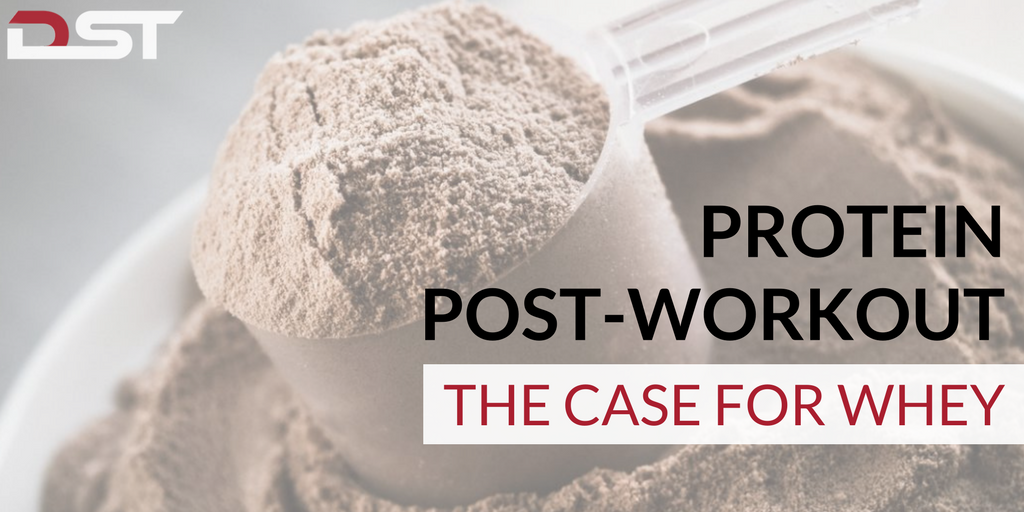
Much gets made of supplementation these days. The sources of macronutrients (carbs, proteins and fats) are commonly a topic of debate in the fitness and sports performance world. But why? I’m specifically going to focus on post-workout protein intake as it pertains to effects on hypertrophy (muscle growth), since that is what most of my training population really cares about. Let’s start with the basics.
- Nutrient Timing: According to Dr. John Ivey in his book, Nutrient Timing, protein (with carbs and sugars) consumed post-workout has a window of effectiveness around 45 minutes from cessation of a resistance training session. Still, the most primed the body is to uptake post-workout really sits around 15-20 minutes. This is when insulin starts to lower in the body and cortisol begins to rise. Insulin is vital to protein synthesis.
- Leucine: Leucine is an amino acid that is prevalent and effective at regulating protein synthesis. In studies (Dreyer, et al.), Ingestion of 3-4g of leucine post-workout was as effective at stimulating protein synthesis as when multiple amino acids were ingested.
- To specifically target hypertrophy, the protein must a.) have a good bioavailability, b.) be quickly digested and c.) contain essential amino acids (specifically 3-4g of leucine).
In light of this, whey protein has the highest rating when compared to soy, casein, milk and whole foods. Whole foods typically digest too slowly, and by the time the food is broken down, you have missed your window. Casein has a low bioavailability grade in relation to milk and whey. The reason breaks down to this. Milk is primarily Casein (roughly 80%) and around 20% whey. Whey has a much higher availability grade, and it is rapidly digested which triggers faster protein synthesis. Soy, being a vegetable based protein DOES contain all essential amino acids, but it has a lower overall bioavailability to milk-based proteins.
At the end of the day, whey seems to be the best form of pre and post-workout protein, because it is more bioavailable, can be digested quicker and has the essential amino acids (especially leucine) needed to activate protein synthesis for effective hypertrophy and growth. None of it matters, though, if you don’t get enough calories daily. Protein is not magic. You still have to eat. A lot.
Sources:
Li JB, Jefferson LS: Influence of amino acid availability on protein turnover in perfused skeletal muscle. Biochim Biophys Acta. 1978, 544: 351-359. 10.1016/0304-4165(78)90103-4.
Buse MG, Reid SS: Leucine, a possible regulator of protein turnover in muscle. J Clin Invest. 1975, 56: 1250-1261. 10.1172/JCI108201.
Hoffman J, Falvo M: Protein—which is best?. J Sports Sci Med. 2004, 3: 118-130.
Hartman J, Tang J, Wilkinson S, Tarnopolsky M, Lawrence R, Fullerton A, Phillips S: Consumption of fat-free fluid milk after resistance exercise promotes greater lean mass accretion than does consumption of soy or carbohydrate in young, novice, male weightlifters. Am J Clin Nutr. 2007, 86 (2): 373-381.
Rankin J, Goldman L, Puglisi M, Nickols-Richardson S, Earthman C, Gwazdauskas F: Effect of post-exercise supplement consumption on adaptations to resistance training. J Am Coll Nutr. 2004, 4 (23): 322-330.

Leave a Reply